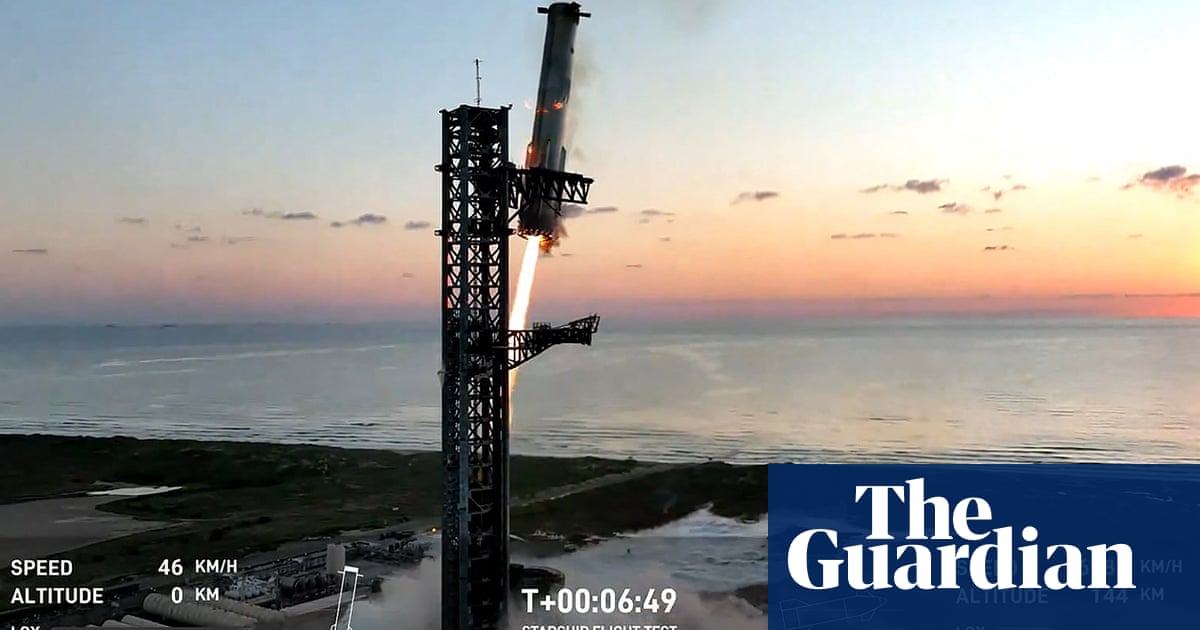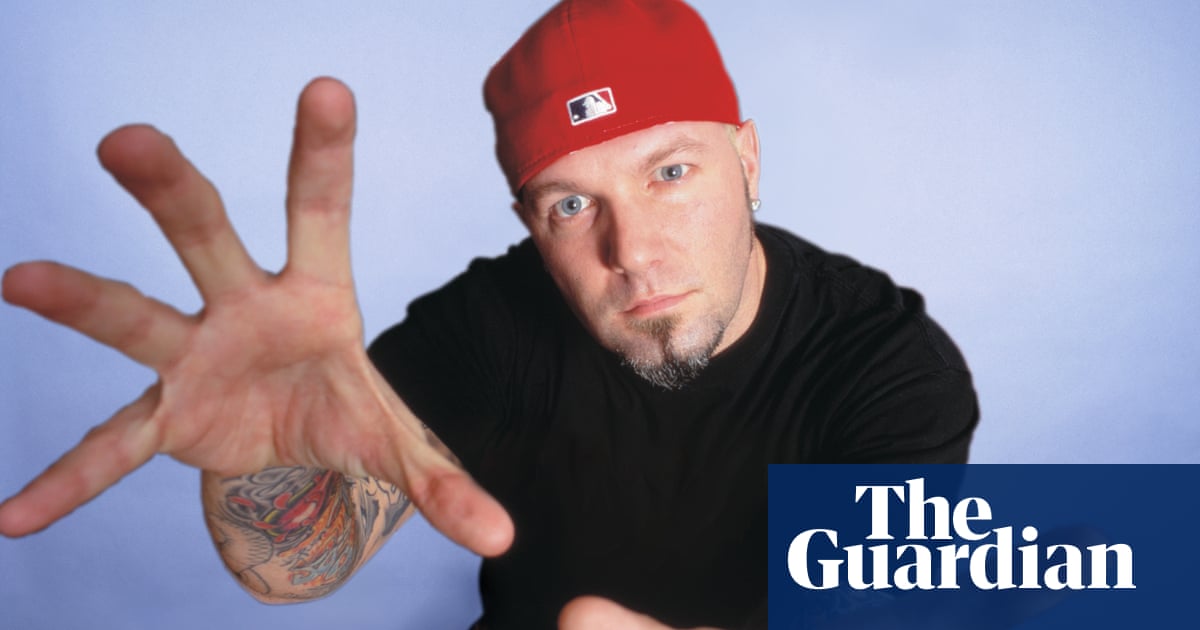The week Maria Bakalova was asked to consider playing Ivana Trump for the new film The Apprentice, she was in New York filming something else. With the meeting scheduled for her one day off, she spent the evening before trying to channel Donald Trumpâs first wife. The film is set in the 70s and 80s, so she spent hours wading through photos of Ivana in that era. âA lot of makeup, a lot of hair,â she says. Bakalova laughs as she remembers spending the evening experimenting with a mushroom-like hairstyle and âheavy eyeliner with a lot of powder, like inchesâ, although she didnât have an Ivana-esque wardrobe â âAm I gen Z or a millennial?â asks the 28-year-old. Either way, âWe wear a lot of baggy clothesâ, so she chose her most skintight outfit.
She met the director Ali Abbasi in the middle of the day, feeling a little clownish in her Ivana cosplay. They spoke for a couple of hours, âabout people growing up in post-communist countries â because [Ivana] was from Czechoslovakia, and I was born and raised in Bulgaria â which shapes your inner world, your thoughts. We talked a lot about the similarities of our stories.â
Ivana had been a competitive skier, with a place on the national junior team that allowed her to compete outside communist Czechoslovakia in the late 60s. By the mid-90s, when Bakalova was born, Bulgaria was no longer a socialist republic but, for most people, travel outside the country was still rare. As a child, Bakalova, a competitive singer, got to travel to competitions all around Europe. It opened her eyes and instilled a sense of independence.
This is Bakalovaâs highest profile role since her big break in Borat Subsequent Moviefilm, Sacha Baron Cohenâs 2020 mockumentary sequel about the Kazakhstani reporter Borat Sagdiyev. She played Boratâs daughter, Tutar, in a performance so cringingly brilliant it got her an Oscar nomination. Despite this early success, Bakalova says her agents warned her not to get her hopes up about the role of Ivana â higher profile US actors were also in the running. âWhat I think is important is that [Abbasi] gave a chance to an eastern European to compete,â she says. âTo have the opportunity, rather than just playing a prostitute or a crazy Russian scientist or a mobster or somebody that is just in the background with a few lines.â
It was six months before she found out that sheâd got the role, followed by a tortuous journey to get the film made and released. In a Vanity Fair piece, the filmâs screenwriter, Gabriel Sherman, detailed the various obstacles â actors who didnât want to âhumaniseâ Trump, Hollywood studios and streamers who wouldnât finance it, Trumpâs Muslim travel ban that made it difficult for Abbasi, who is Iranian and based in Denmark, to work in the US (as well as the actorsâ strikes and a global pandemic). The Apprenticeâs largest investor, a film-making son-in-law of a billionaire and prominent Trump donor, reportedly threatened to sink the film once heâd seen it, because of a scene in which the Trump character appears to rape his wife. Ivana alleged Trump raped her in her divorce deposition, but later retracted. Trumpâs lawyers sent the film-makers cease-and-desist letters and the big American distributors wouldnât touch it. âHollywood fashions itself as a community of truth tellers,â wrote Sherman, âbut here they were running from a movie to prepare for a Trump presidency.â
âWeâve been facing a bit of difficulty to release it,â says Bakalova, with comic understatement.
In the film, Trump (played by a toupeed Sebastian Stan) is ambitious but slightly awkward and in the shadow of his father, then mentored and moulded by nefarious lawyer Roy Cohn (played, typically magnificently, by Successionâs Jeremy Strong). A cinephile, Bakalova was desperate to work with Abbasi â she was a huge fan of his work, including Holy Spider, the Iranian serial killer film. She wanted, she says, to be involved in his âdive into the underbelly of the American empireâ. The more she researched Trumpâs first wife â and the mother of three of his children â the more she found herself fascinated by how much Ivana achieved on her own. âShe wanted to be Donaldâs partner,â she says. Ivana is credited with promoting the coupleâs 80s glitz, she was involved in running part of his businesses and managed New Yorkâs Plaza hotel. âI think she was the reason he achieved so much early because she was very smart, very ambitious.â
In the film, the power balance between Ivana and Donald is in her favour at the start of their relationship; Ivana is horrified at the idea of a prenup, and the measly amount it would give her in the event of a separation, and negotiates a better deal. âI saw an interview with her after the divorce, saying she didnât know anything about prenups, and why do you need to have them? But if youâre going to play this game that way, if thatâs going to be the picture of our marriage, OK, Iâm going to play the same way.â
How did she feel about the inclusion of the alleged rape in the film? Trump has always denied the allegations, since retracted by Ivana, who died in 2022. Bakalova says she trusted Sherman. âDo I think itâs important to have it out there?â she says. âDo I think itâs a crucial scene for both of the characters? It is, because we see somebody completely dismissing the person who built him in a lot of ways, who gave birth to his children. Not only physically, but verbally as well.â
She says she doesnât think it matters if the film âhumanisesâ Trump (reviews have said it lacks bite). âWhen you dive deeper into a human being, thereâs always good and bad sides, and there are always decisions that you make based on circumstances, people you surround yourself with, that change your point of view ⦠I think we should step away from the idea of demonising people or creating idols, because people are complex.â That said, she also describes Trump as âone of the most vicious people of our centuryâ.
The Borat sequel was released less than two weeks before the 2020 US election, with the words ânow voteâ flashed up at the end. The Apprentice is also coming out around election time. Is it intended to have any influence? No, says Bakalova â itâs been too long in the making for any kind of intentional timing. âThis is not a political film, this is not a hit piece,â she says. Although there are clear echoes, deafening in parts, of who the Trump character will later become. âWill it change opinions? I donât know. But I feel like the biggest privilege that we have living in a democracy is to share our voices and to have an opinion, one way or another.â
Bakalova grew up in Burgas, a city on the Black Sea coast. Her mother was a nurse, and her father a chemist; she is an only child. They were considered middle-class, she says, but she remembers as a child that nobody in Bulgaria had much.
âBecause of communism and because of inflation, because of a lot of things. I remember back in the 90s, chewing gum going from 100 bucks to 10 bucks to one penny.â They were comfortable, financially, she says, âbut itâs not so easy that you can allow yourself to just rest and wait for something to happen. You know that you have to do something if youâre going to succeed.â
Her love of the arts started with music. Her father would play the guitar at home, and she grew up listening to rock music and wanting to emulate those musicians. âUnfortunately, again, growing up in Bulgaria and in a place that still has some kind of patriarchy mindset, playing guitar is a little bit too masculine.â Instead, she became a flautist and was also singing in the choirs that would take her around Europe to various competitions.
When she was 12, she damaged her voice and stopped singing for several months to rest it. âI started reading a lot of books and imagining that Iâm in different places, I want to be like these characters. How can you somehow escape real life and imagine that youâre somebody else? That was the starting point of me falling in love with acting.â Later, Bakalova would study at Sofiaâs National Academy of Theatre and Film Arts.
She loves theatre and arthouse cinema, but she laughs and says âIâm not going to hide that I was always dreaming about Hollywood and America and cinema.â She remembers drawing the Hollywood sign in an exercise book at school, and writing that she was going to be âa great movie star someday. But of course, my last name finishes with âo-v-aâ, and I didnât see that in a lot of credits at the end of films.â One teacher told her that if she wanted to expand beyond Bulgarian film, she should try to get involved in the types of films shown on the European festival circuit.
Bakalova discovered the Danish avant garde Dogme 95 movement and, during her final year of university, used some of her scholarship money to buy flights to Copenhagen for her and her parents. She had an ambitious plan to march into the offices of Lars von Trierâs production company, Zentropa. âI was, like, âIâm going there, and Iâm going to say, âI am willing to work here for free, to study, to learn how you guys do all of these incredible movies.ââ She laughs, remembering her and her mother in the rain, Googling the office address. (They were kind, but sent her away, saying she would have to be fluent in Danish, which she then vowed to study.)
Not long afterwards, Bakalova was shooting a Bulgarian French film, Women Do Cry, in which she played a young woman with HIV, when she heard through a friend about a project, which she would later find out was Borat, which required an eastern European actor. So secretive was the process that she feared she was being conned into human trafficking, but she was also tempted by the chance to audition in the UK â she thought she might get a chance, somehow, to meet the British director Andrea Arnold.
In Borat, her character Tutar dreams of becoming like âPrincess Melaniaâ and becomes the âgiftâ Borat is supposed to deliver to one of Trumpâs men, first the vice-president Mike Pence, and then Rudy Giuliani, to strengthen relations between their countries. Bakalova was a revelation in the film, infusing her character with a life-changing feminist trajectory while also having to pull off some excruciating scenes with ârealâ people, including leading an anti-abortion campaigner at a clinic to believe she was pregnant with her fatherâs baby and describing, to a group of women at a Republican conference, having just masturbated for the first time in the loos.
âI donât know how I did it,â she laughs. âI donât know if I will I ever be able to do it again. Itâs so strange, and I think that is why Sachaâs work is so brilliant. He challenges people, he does these movies that are like a social experiment of how far can you go?â It was âdefinitely difficultâ she says. With only one shot, did it feel like a lot of pressure not to mess it up, or come out of character? âSacha was so gracious, he was holding my hand every step of the way and guiding me, and I trusted him.â
There is a scene with Giuliani, which created a lot of attention. Tutar, by now a reporter for a rightwing news channel, is conducting a fawning interview with the former New York mayor and attorney to Trump in a hotel suite, before suggesting they go to the bedroom. Giuliani is filmed lying back on the bed with his hands down the front of his trousers (later, he claimed he was rearranging his clothes after removing a microphone). Was it the plan to get him in the bedroom? âYou can only plan so much, but itâs about real people, real places, real situations. You can have goals that you want to achieve, but it depends on the moment. It was ideal to see how far things can get.â Was she nervous? âIt was nerve-racking, because you donât know how these things are going to turn. We worked with a great team of people. We had a great security team, we had a great stunt team. We had a lot of people that made sure we were all safe.â
It helps, she says, having female producers â Monica Levinson on Borat, and Amy Baer on The Apprentice. âItâs important to have a female perspective behind the scenes, [and] if youâre doing such challenging roles, both as Ivana or Tutar, having a female there looking after you, looking after the story.â
Bakalova has voiced a character in Marvelâs Guardians of the Galaxy Vol 3 (Cosmo the Spacedog), was in the dark comedy Bodies Bodies Bodies and has just finished shooting a family drama, Learning to Breathe Underwater â but in Borat and The Apprentice, her two standout films are about Trump. It is strange, she admits, but adds: âI think Borat is not about Trump. I do find a few similarities between the movies because they explore the American empire, and that land that we all have heard is the place you can feel freedom and opportunity. But both movies show there is always a dark side to it.â
The Apprentice is released in cinemas on 18 October.











